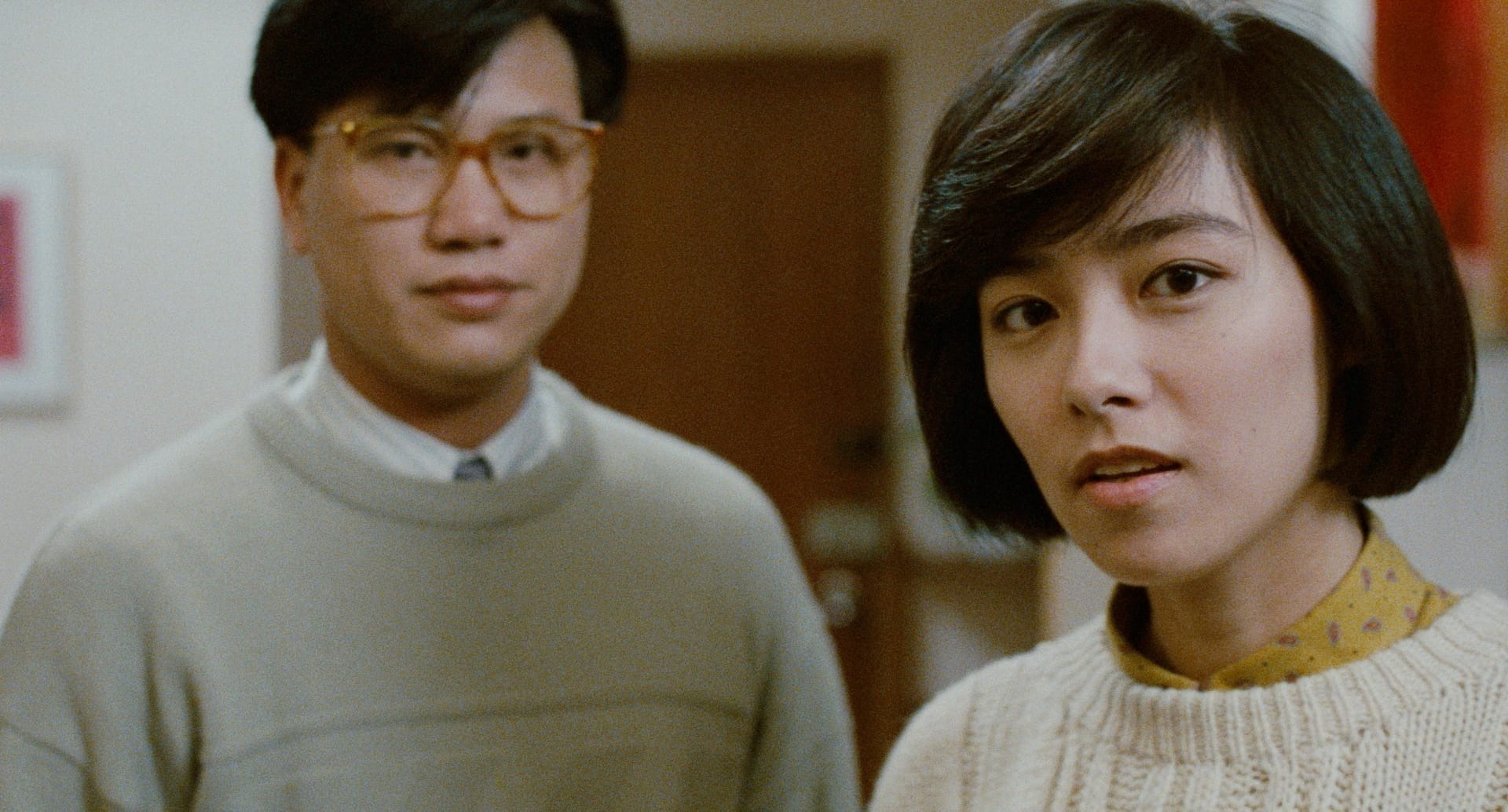RELATED ARTICLE
10 Things I Learned: Rouge
By Aliza Ma
The Criterion Collection

Rouge (1987) opens with a shock of beauty—or rather two shocks, in the forms of the young lovers whose doomed romance is about to unfold. In a wordless prologue, a woman (Anita Mui Yim-fong)—clad in a black, dragonfly-patterned cheongsam and framed in close-up against an expanse of floral wallpaper—locks eyes with the viewer, looking into the camera as if it were a mirror. A makeup ritual is in progress: she paints on her eyebrows, then holds a piece of red dye paper to her pursed lips, turning them scarlet. A fade to black transports us to a bustling restaurant where courtesans mingle with suitors, and where one patron (Leslie Cheung Kwok-wing) is making a literally head-turning entrance. Ascending the stairs, seemingly beckoned by a siren song from above, he passes two women whose eyes coyly linger on him; he turns to acknowledge their gazes, his smile suggesting he knew he would have that effect. As he enters a room in which a courtesan is serenading a table of guests, the music stops, as if catching its breath.
Here, in a few swooning minutes, is an encapsulation of what makes Stanley Kwan, the director of Rouge, one of the cinema’s truest romantics. In Rouge, his third feature, and in later films including Center Stage (1991) and Red Rose White Rose (1994), Kwan does not merely tell stories of the lovestruck and the heartsick; he translates their overflowing emotions into an expressive language of desire, characterized by sinuous camera moves and patterned light and shadow. The lovers introduced at the start of Rouge, star-crossed from the get-go, are Fleur (Mui), a courtesan at a high-end brothel in Shek Tong Tsui, the red-light district of 1930s Hong Kong, and Chan Chen-pang (Cheung), also known as Twelfth Master, the scion of a business dynasty. When they first meet, Fleur, dressed in male drag, is singing a song from the Cantonese opera The Sorrows of the Autumn Traveler. (An ode from a scholar to a courtesan, it is a lament of separation and sadness that anticipates what is to come.) Games of courtship play out in mirrored spaces that intensify the lovers’—and our—feelings of vertigo. On Twelfth Master’s first visit to the brothel, Fleur alternates between approach and retreat, keeping him waiting between rounds of mahjong. His gestures of devotion soon become more public and more extravagant: orchestrating a fireworks display that unfurls a message on a scroll; purchasing for their sole use a gold-framed bed, which he has hoisted through the brothel’s central courtyard for all to see.
Twenty minutes in, Rouge imparts another shock with a cut to the gleaming Hong Kong nightscape of the eighties, where we are suddenly with a different couple, Yuan (Alex Man Chi-leung) and Chu (Emily Chu Bo-yee), both journalists. One night Fleur appears in their newsroom—an impossible apparition, wearing the same outfit we saw in the prologue—asking to place an ad for a missing person. It transpires that Fleur and Twelfth Master, their relationship undone by his family, resolved to spend eternity together by killing themselves in a suicide pact. But only she went through with it. After fifty-three years of waiting in solitude, Fleur has journeyed “from below,” as she puts it, to find her lover.

